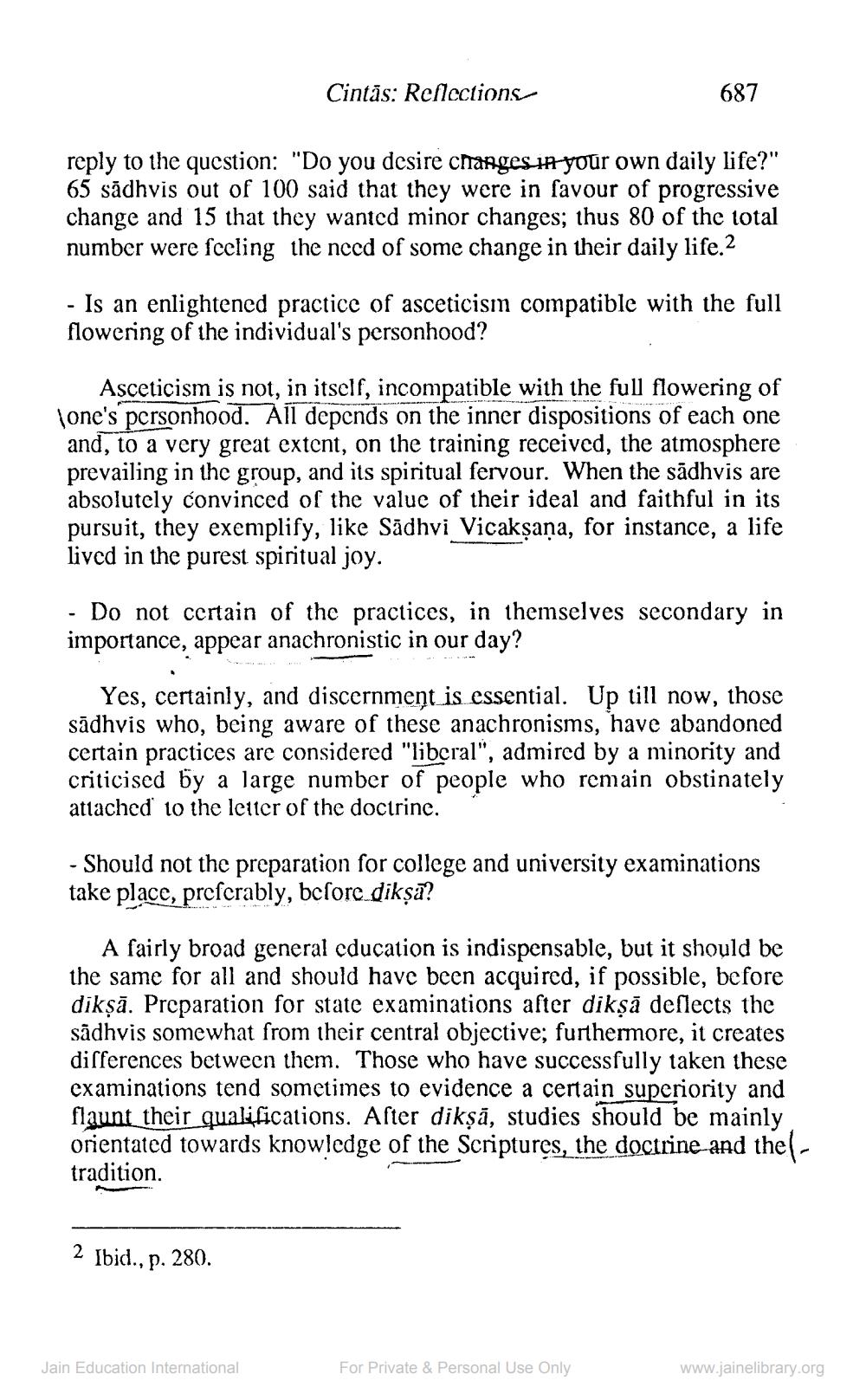________________
Cintās: Reflections
687
reply to the question: "Do you desire changes in your own daily life?" 65 sădhvis out of 100 said that they were in favour of progressive change and 15 that they wanted minor changes; thus 80 of the total number were feeling the need of some change in their daily life.2
- Is an enlightened practice of asceticism compatible with the full flowering of the individual's personhood?
Asceticism is not, in itself, incompatible with the full flowering of lone's personhood. All depends on the inner dispositions of each one and, to a very great extent, on the training received, the atmosphere prevailing in the group, and its spiritual fervour. When the sadhvis are absolutely convinced of the value of their ideal and faithful in its pursuit, they exemplify, like Sadhvi Vicakṣaṇa, for instance, a life lived in the purest spiritual joy.
- Do not certain of the practices, in themselves secondary in importance, appear anachronistic in our day?
Yes, certainly, and discernment is essential. Up till now, those sādhvis who, being aware of these anachronisms, have abandoned certain practices are considered "liberal", admired by a minority and criticised by a large number of people who remain obstinately attached 10 the letter of the doctrine.
- Should not the preparation for college and university examinations take place, preferably, bcsore dikṣā?
A fairly broad general cducation is indispensable, but it should be the same for all and should have been acquired, if possible, before dikṣā. Preparation for state examinations after dikşā deflects the sādhvis somewhat from their central objective; furthermore, it creates differences between them. Those who have successfully taken these examinations tend sometimes to evidence a certain superiority and flaunt their qualifications. After dikṣā, studies should be mainly orientated towards knowledge of the Scriptures, the doctrine and theltradition.
2 Ibid., p. 280.
Jain Education International
For Private & Personal Use Only
www.jainelibrary.org




